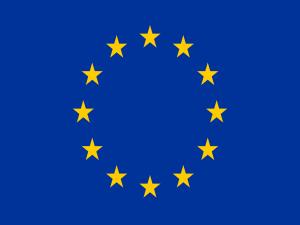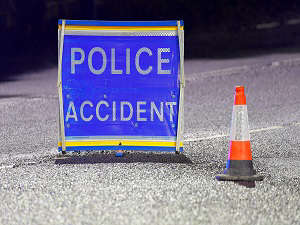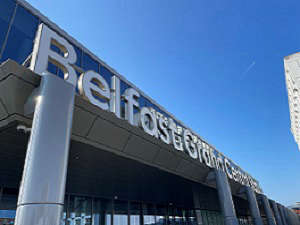
By Ed Carty PA
Europe has called for a unique solution for the Irish border in the wake of Brexit.
In a four-page document on the critical issue for the island of Ireland, negotiators in Brussels have warned that it is more than just a customs problem.
Michel Barnier's team said they were not offering solutions on how cross-border trade and travel will be protected on the island of Ireland.
They said the onus was on the UK to come up with ideas to avoid a hard border, including checkpoints.
The long-awaited paper said: "It is the responsibility of the United Kingdom to ensure that its approach to the challenges of the Irish border in the context of its withdrawal from the European Union takes into account and protects the very specific and interwoven political, economic, security, societal and agricultural context and frameworks on the island of Ireland.
"These challenges will require a unique solution which cannot serve to preconfigure solutions in the context of the wider discussions on the future relationship between the European Union and the United Kingdom."
Reports in Ireland suggested the document was drawn up with deep influence from Dublin.
The Irish border is effectively invisible. It is 500km long, with 260 road crossings, a Dublin-Belfast rail link, tourist waterways and 2 million cars moving back and forth every month.
The Brussels document warned that a thorough understanding of the issues beyond customs rules is needed to move negotiations forward.
The paper called for the negotiations to secure a political commitment to protect the Good Friday Agreement and the gains of the peace process.
It said these gains need to be strengthened, including the societal benefits and the normalisation of community relations in Northern Ireland and north-south.
"Flexible and imaginative solutions will be required to avoid a hard border, including any physical border infrastructure," the paper states.
"This must be achieved in a way which ensures that Ireland's place within the internal market and Customs Union is unaffected."
The Irish Government said: "Our priorities remain protecting the Good Friday Agreement and the peace process, including by avoiding a hard border, and maintaining the Common Travel Area."
It called on the UK Government to make "substantive commitments and workable solutions" to the question of the Irish border.
"The principles reflected in this paper must underpin any arrangements and solutions to be proposed, developed and agreed in future negotiations," the Irish Government said.
The Brussels paper warned that the UK and Europe will have to assess how north-south cooperation could be impacted if and when EU law ceases to apply in Northern Ireland and whether specific provisions need to be made for this.
Mr Barnier's team called on London to make sure people's rights under the Good Friday Agreement are not affected, including by protecting against discrimination.
They said Irish citizens living in Northern Ireland must keep their rights as EU citizens.
They called for both London and Brussels to commit to paying what is due under peace dividend funding programmes.
The Brussels paper also described the Common Travel Area, which dates back to the 1920s, as a fundamental right which should be maintained. It said it underpins the peace process.


 Two men arrested on suspicion of attempted murder after man found injured
Two men arrested on suspicion of attempted murder after man found injured
 Teenage driver arrested after passenger killed in collision
Teenage driver arrested after passenger killed in collision
 Two men remanded over murder of pensioner in Co Tyrone
Two men remanded over murder of pensioner in Co Tyrone
 Man arrested in O’Hagan murder probe charged with fraud
Man arrested in O’Hagan murder probe charged with fraud
 Kimmins ‘stands firm’ following row over station Irish language signs decision
Kimmins ‘stands firm’ following row over station Irish language signs decision